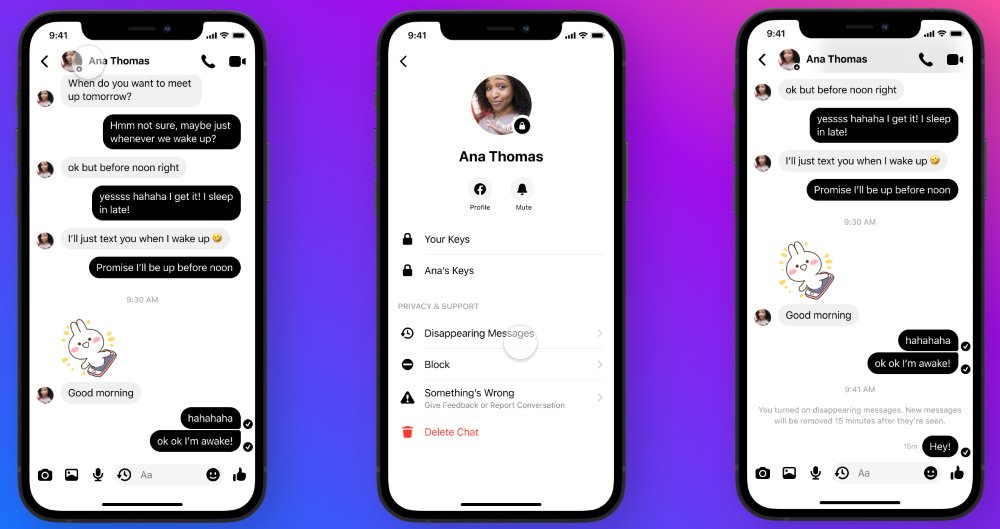Facebook revealed the rollout of end-to-end encrypted Messenger voice and video calls five years after making it available in one-on-one text chats. End-to-End encryption (E2EE) is utilized by well-known transmissions and collaboration platforms, including Microsoft Teams (on 1:1 VoIP calls), Zoom, as well as Facebook’s WhatsApp.
E2EE secures the messages, videos, and voice channels to protect the user’s conversation from intrusive eyes, including the platform’s owner or malicious actor who wants to interrupt their discussions.
“The inforamtion of the messages and calls in an end-to-end encrypted conversation is secured from the moment it leaves your device to the moment it reaches the receivers device,” said Ruth Kricheli, Messenger’s Director of Product Management.
“This means that nobody else, including Facebook, can see or listen to what’s sent or said. Always remember, that you can report an end-to-end encrypted message to us if something went wrong.”
“This change comes after Messenger users have made over 150 million video calls a day during the last year, with both audio and video calls seeing a tragic surge.”

More protection-related Modifications
Messenger’s terminate message feature was also updated with today’s rollout to permit users to decide on their own when they want their messages to disappear from the chat. The Disappearing Messages setting now facilitates, customizable from 5 seconds to 24 hours.
Facebook is also suggesting end-to-end encryption for Instagram DMs (messages and calls) is also planned to kick off in select countries.
“Similar to how Messenger works today, you require having an existing chat or being following each other to initiate an end-to-end encryption DM,” Kricheli added. “As always, you can block someone you don’t want to talk to or report something to us if it doesn’t seem right.”

Are these are the Indications of good things to come?
While these modifications are absolutely a step in the right direction for Messenger, Facebook had to deal with multiple privacy incidents harming its users’ security and privacy. Recently, Facebook-owned WhatsApp had to backtrack on its decision to limit the app’s functionality for users who disagree with a new privacy policy requiring them to share their data with other Facebook companies.
The change of mind came after the Hamburg Commissioner for Data Protection and Freedom of Information (HmbBfDI) banned Facebook in May from processing WhatsApp user data for three months.
In April, five hundred thirty-three million users also had their account data (including phone numbers and Facebook IDs) leaked on a hacker forum. Facebook later said the leak resulted from bulk scraping profiles using a bug in Facebook’s Contact Importer feature back in September 2019.



